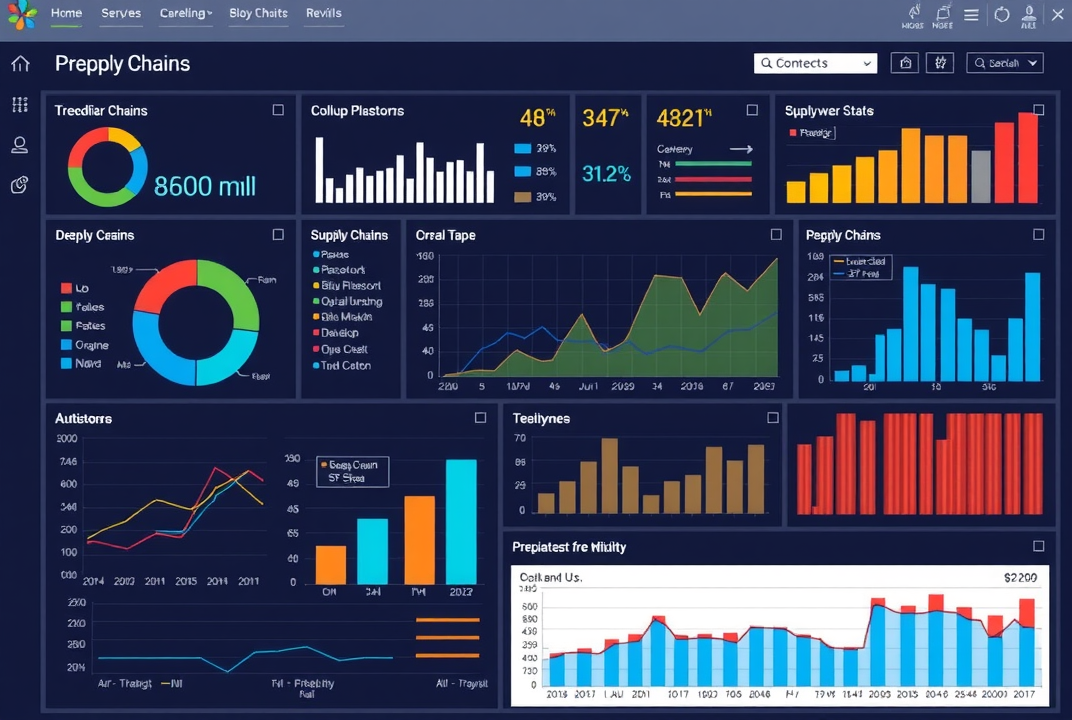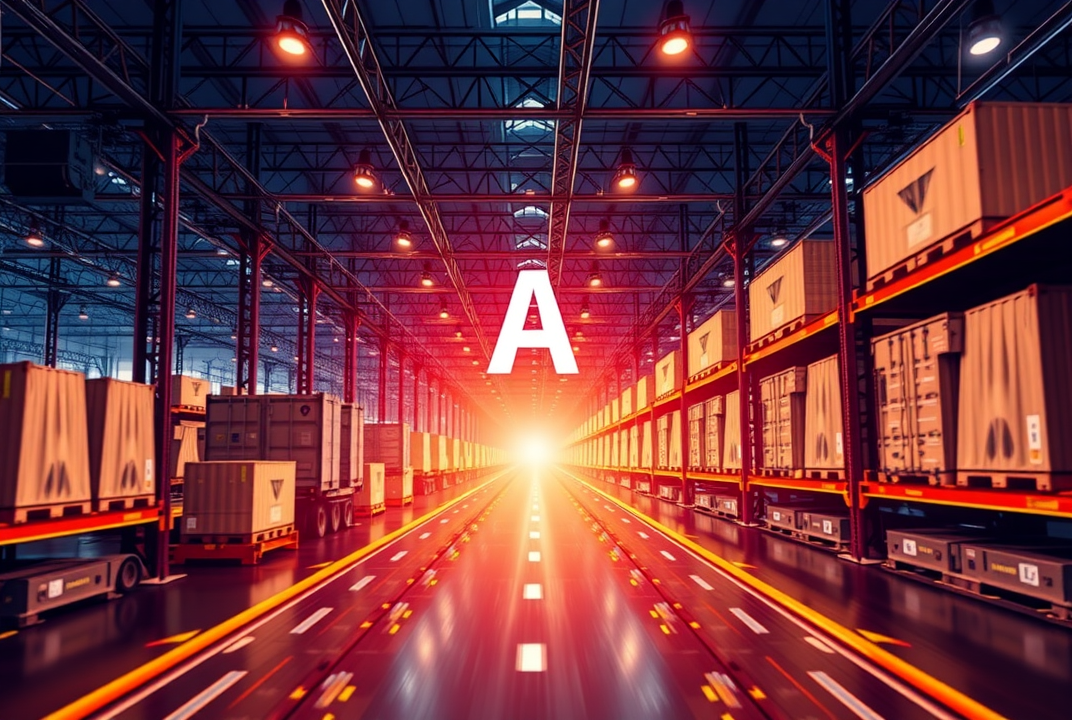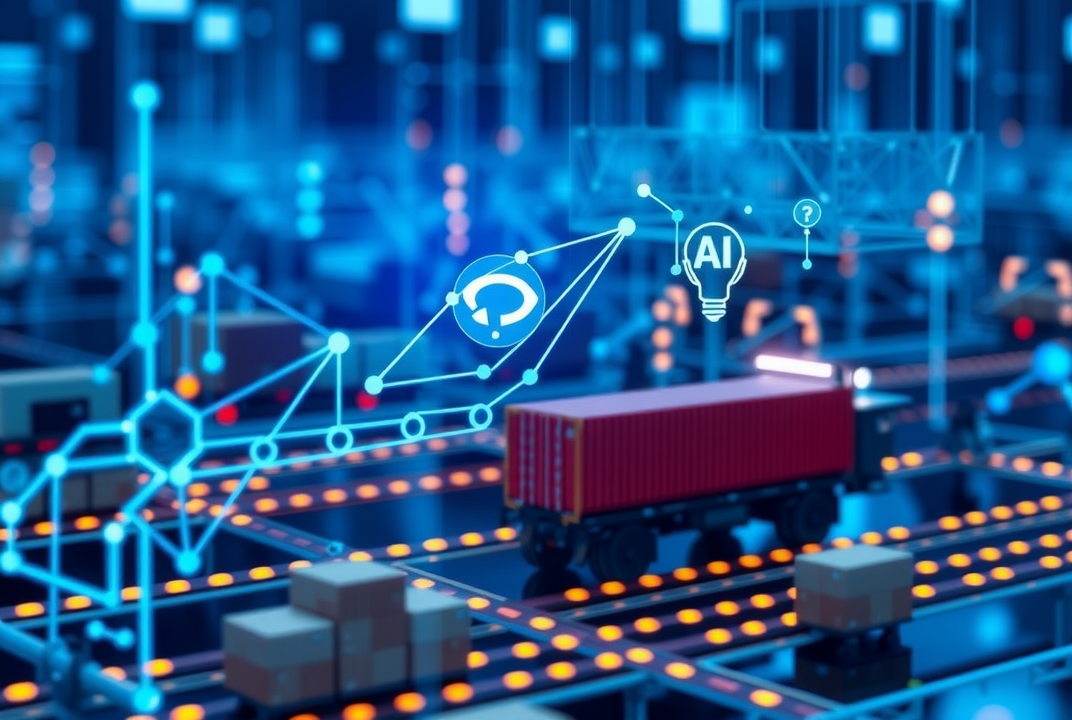How AI is Transforming Supply Chain Management with AI

Introduction
In today's interconnected world, the supply chain stands as the backbone of global commerce. A surprising statistic: companies can lose up to 45% of annual profits due to supply chain inefficiencies. One might wonder how Artificial Intelligence (AI) is addressing these inefficiencies and what role it is playing in reshaping this integral part of business operations?
This article will explore the transformative power of AI in supply chain management, highlighting its impacts on various aspects like logistics, predictive analytics, and decision-making processes. Readers will gain insights into how companies are leveraging AI to enhance efficiency, and sustainability, and achieve a competitive edge.
The Role of AI in Supply Chain Management
Artificial Intelligence has stepped into the field with promises of optimizing every supply chain element. From enhancing demand forecasting to ensuring a seamless flow of goods, AI is making waves. Let’s break down the specific roles AI is performing:
-
Demand Forecasting Enhancement: AI tools analyze historical data, market trends, and consumer habits to provide accurate demand forecasts, crucial for inventory management and resource allocation.
-
Inventory Management Optimization: AI-based systems automate stock management, reducing human error and ensuring timely replenishment, thus minimizing overstock and stockouts.
-
Logistics Efficiency Improvement: AI-powered route optimization algorithms consider traffic, weather, and other variables to suggest the best delivery routes, saving time and costs.
-
Supply Chain Transparency: Machine learning algorithms offer real-time tracking and detailed insights into product movement, enhancing traceability.

Predictive Analytics: The Game-Changer
Predictive analytics is revolutionizing decision-making within supply chains by relying on advanced AI capabilities. Companies now foresee challenges and handle them proactively.
-
Proactive Maintenance: AI helps in predicting machinery failures, reducing downtime, and maintaining consistent production.
-
Risk Management: Algorithms can assess potential risks, from market fluctuations to natural disasters, allowing timely interventions.
-
Cost Reduction: By analyzing spending patterns, AI offers insights into cost-effective practices.
One example includes a global electronics company that integrated AI analytics to cut logistics costs by 25% in a single fiscal year.

AI-Powered Automation and Its Impact
Automation through AI not only speeds processes but also enhances accuracy:
-
Automated Warehousing: Robots and AI collaborate to manage warehouses efficiently, handling tasks like picking, sorting, and packaging.
-
Order Processing: AI systems manage and process orders faster, lessening manual errors.
Embracing such technology, a leading retailer reduced its order processing time by 40% while enhancing accuracy, showcasing AI's real-world impact.
Challenges and Considerations
Despite AI's advantages, there are challenges:
-
Data Quality and Integration: Clean, integrated data is a prerequisite for AI to work effectively; poor data hampers AI functionalities.
-
Cost of Implementation: The initial setup can be expensive, which deters smaller companies.
-
Skilled Workforce Need: Implementing AI technologies requires a skilled workforce, prompting training and hiring demands.
These aspects must be navigated carefully to realize AI’s full potential within supply chains.

Conclusion
AI is reshaping supply chain management from ground up, creating avenues for improved forecasting, greater efficiency, and cost savings. By integrating AI technologies, companies are achieving enhanced operational performance and sustainability.
For businesses pondering whether to incorporate AI, understanding its transformative nature offers a chance to stay competitive. Implementing AI solutions requires careful planning and investment, yet as illustrated, the possibilities for improvement and growth are significant.
To stay ahead, companies must not shy away from adopting AI in their supply chains, as the benefits far outweigh the challenges.
Next Steps for Businesses
-
Evaluate current supply chain processes for potential AI integration.
-
Start with pilot projects to test AI tools and technologies.
-
Invest in training programs for employees to effectively manages AI technologies.
